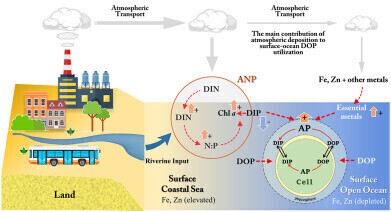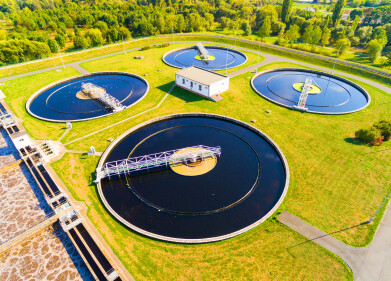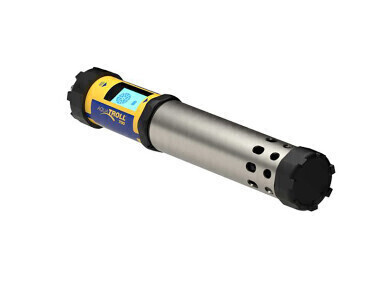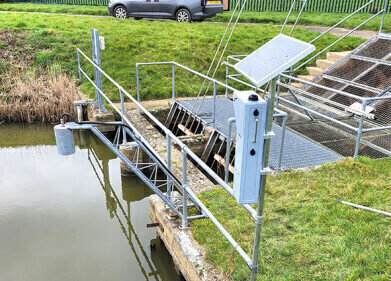-

-
 Haoyu-Jin
Haoyu-Jin -

Water Monitoring
Pollutants from aerosols and river run-off are changing the marine phosphorus cycle in coastal areas.
Jan 31 2024
Recent research has highlighted the effects of human-induced pollutants on the marine phosphorus cycle within coastal seas, shedding new light on the repercussions of human activities on coastal ecosystems.
Conducted in collaboration between the University of East Anglia and the Sino-UK Joint Research Centre at the Ocean University of China, the study specifically investigated the impact of aerosols and river run-off on microalgae in the coastal waters of China. Unveiling an 'Anthropogenic Nitrogen Pump,' the research demonstrated alterations to the phosphorus cycle, suggesting potential ramifications for coastal biodiversity and associated ecosystem services.
In a healthy ecosystem, microalgae, also referred to as phytoplankton, serve as a vital food source for various marine creatures, including fish, shrimp, and jellyfish.
Lead researcher Haoyu Jin, a visiting PhD student from the Ocean University of China at UEA’s School of Environmental Sciences, explained the study's significance, stating, "Our work establishes a foundation for understanding the consequences of human-induced eutrophication, where nutrient influx triggers extensive algal blooms, disrupting the nitrogen-phosphorus nutrient balance."
The study highlighted the increasing production of waste, including liquid substances and aerosols, attributed to economic activities in coastal regions. Jin noted, "Our findings indicate that dissolved nitrogen, a prevalent component in these waste products, reduces phosphate levels significantly in coastal oceans. This reduction limits the availability of phosphorus for algae, crucial for their growth."
The research involved a series of microcosm experiments conducted in China's coastal seas. It revealed that as the levels of dissolved inorganic phosphorus (DIP) vital for phytoplankton growth diminished due to rising nitrogen levels, microalgae adapted by enhancing the activity of alkaline phosphatase to utilise dissolved organic phosphorus (DOP).
Co-researcher Prof Thomas Mock from UEA’s School of Environmental Sciences expressed concern about the consequences of continuing to pollute coastal oceans with predominantly nitrate-rich waste products. He warned, "This creates a paradox: despite nutrient pollution, coastal biological communities may shift, favouring only those primary producers capable of using organic phosphorus. This could alter the diversity and metabolism of ocean microbiota, with subsequent impacts on ecosystem services like fisheries, as they form the foundation of coastal food webs."
In contrast to previous studies focused on open oceans with limited plant nutrients, this research highlighted the impact of atmospheric deposition and river runoff on stimulating phytoplankton growth in China Coastal Seas, suggesting similar effects in other coastal seas with industrial activities nearby.
The study introduced the concept of the 'Anthropogenic Nitrogen Pump,' a driving mechanism for phytoplankton growth influenced by human activities. It elucidated how the pump leads to increased nitrogen absorption by phytoplankton, exacerbating phosphorus deficiency, and enhancing the bioavailability of DOP for their growth.
The findings suggest that the hydrolysis and utilisation of DOP are jointly regulated by the concentration of dissolved inorganic phosphorus and phytoplankton biomass, indicating that the process driven by the 'Anthropogenic Nitrogen Pump' is likely prevalent in coastal seas globally with varying nutrient levels.
Chinese partners in the research included the Laoshan Laboratory, Yantai University, The Yantai Institute of Coastal Zone Research, and the University of Chinese Academy of Sciences in Beijing. The study received funding from NSFC-Shandong Joint Fund, National Key R&D Program of China, National Natural Science Foundation of China, and Fundamental Research Funds for the Central Universities.
Digital Edition
AET 28.2 April/May 2024
May 2024
Business News - Teledyne Marine expands with the acquisition of Valeport - Signal partners with gas analysis experts in Korea Air Monitoring - Continuous Fine Particulate Emission Monitor...
View all digital editions
Events
Jul 30 2024 Jakarta, Indonesia
China Energy Summit & Exhibition
Jul 31 2024 Beijing, China
2024 Beijing International Coal & Mining Exhibition
Aug 07 2024 Beijing, China
IWA World Water Congress & Exhibition
Aug 11 2024 Toronto, Canada
Aug 25 2024 Stockholm, Sweden and online









.jpg)








